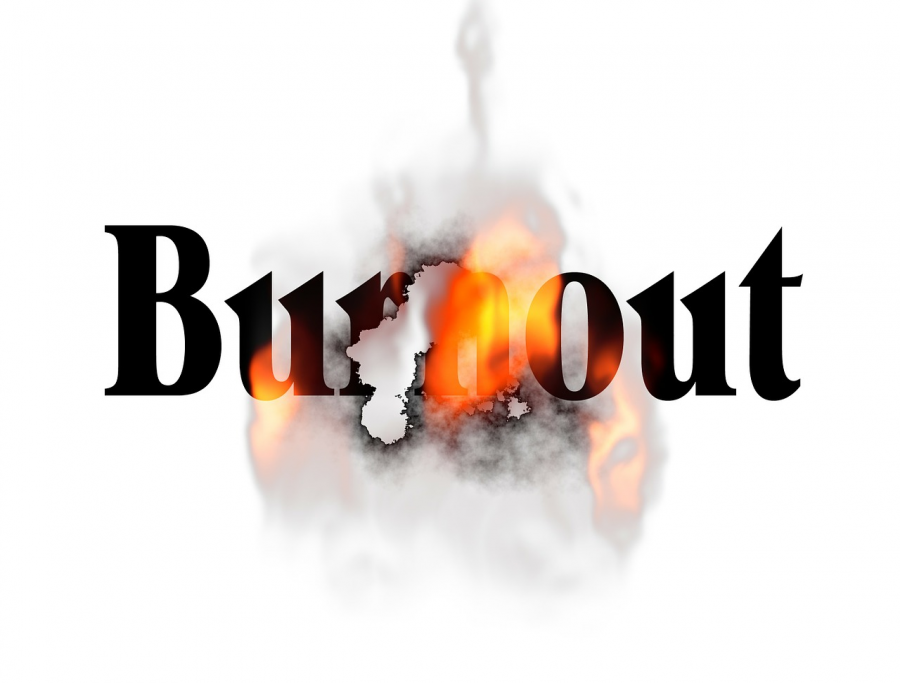The Causes and Effects of Burnout
Dealing with the possible debilitating effects of burnout on high school students
The harsh reality of burnout is a topic that we need to deal with soon.
December 8, 2020
Teenagers are faced with hours of work that will enable the ability to reach long awaited dreams and goals. For most students, this amount of work, effort, and time is worth the copious amount of stress, but every person has their breaking point.
Many students, whether they are aware of it or not, have experienced burnout. Burnout is characterized by mental, emotional, and physical exhaustion from copious amounts of prolonged stress. Stress alone does not cause a burnout, but stress along with lack of support from others and inadequate resources can cause a burnout.
With the semester coming to an end soon and finals just around the corner, many students may find themselves drowning in homework and material to study. Paired with an inadequate amount of sleep, staying inside all day due to the pandemic, and lack of emotional support, this cycle can quickly lead to burnout.
Symptoms of burnout range from constantly feeling overwhelmed and anxious, feeling driven by obligations rather than values, cynicism, and even emotional fatigue. While burnout is not depression, it can be a large factor. This means that it is especially important to recognize the symptoms and take action.
First, realize that mental health should be a key priority because all other aspects of life depend on a healthy mindset, so keeping your mental health in check will allow for school, relationships, and your social life to fall into place. Luckily, performing small tasks and being mindful will allow burnout to subside with no problems.
To overcome burnout, take time to participate in activities such as writing down your stressors, set boundaries when it comes to school, don’t take on things that you can’t handle, communicate with teachers, vent to friends and more. If even smaller steps need to be taken, start with getting enough sleep each night, having a set time for school work, drinking water and eating well.
Overcoming burnout is work in itself, but will allow for growth and new, healthy habits to be made. Remembering that the people around you are people just like yourself can help many people realize that communication is much easier than it is made out to be. Teachers, just like us, face burnout and they understand its debilitating effects. Communicating with your teachers can allow for much more understanding and relief than going through the process alone.
These are activities that not only teenagers, but adults as well, should be participating in whether burnout is prominent in their life or not. Incorporating even a few of the activities can make a large difference in everyday life and simply acknowledging the symptoms of burnout is a step in the right direction.



